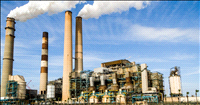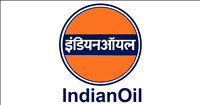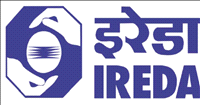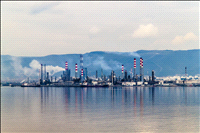Consumer Goods
01 Mar 2001
Mr. Sinha’s budget proposals are unlikely to impact prices of consumer durables manufactured locally, though prices of high end imported completely built units (CBUs) like refrigerators, washing machines, audio systems and air conditioners are expected to go up by an estimated 5-6 per cent. Prices of large-screen televisions, however, may see a marginal difference, more on the lower side, though industry majors are still studying the difference.
No changes have been proposed in the excise duty structure of these consumer durables products, except for an additional countervailing duty (CVD) on the MRP of imported products. The CVD, which was earlier linked to the assessable value, is now linked to the maximum retail price. The companies likely to be affected include MNCs like Samsung, LG, Carrier Aircon, Sony and National Panasonic, while domestic players like BPL, Videocon and Onida, will be indirectly benefited. MNCs like Samsung and LG have an import content of around 20 per cent, while Sony and Carrier have an import content of 30 and 15 per cent, respectively.
With the additional imposition of CVDs, price
of imported products is likely to go up by about 5 per cent. It is also likely that
removal of 10 per cent surcharge on duty would make products like Internet TV might become
10 per cent cheaper, provided manufacturers fully pass on the benefit to the consumers.
Automobiles
After a chilling market downturn, the automobile industry has some reasons to cheer. The
budget has given a major boost to the automobile industry by reducing the excise duty on
two-wheelers from 24 percent to 16 percent and on cars from 40 percent to 32 percent.
Carmakers, who were worried about the impact of imported second hand cars are also happy
that 105 per cent basic customs duty on second-hand MUVs and cars being levied, along with
32 per cent CVD and 4 per cent SAD, totaling up to a combined rate of 180 per cent.
Several car manufacturers are expected to pass on the excise reliefs to the consumers by way of reduced prices. Excise duty for utility multi-vehicles however, remain unchanged at 32 per cent. MUVs wanted the slab to come down to 24, but the Budget 2001 has not offered MUV-makers any relief.
Processed Foods
Processed food industry has reasons to be in a buoyant mood with the budget proposals.
While food items hitherto considered premium luxury products like juices, jellies and jams
will now become more affordable, some mass consumption items like biscuits and edible oils
are going to be more expensive. The budget proposal has reduced the number of excise duty
slabs of 8, 16 and 24 per cent to one single rate of 16 per cent. Thus products which
attracted 24 per cent duty now will be charged only 16 per cent, while those attracting 8
per cent will now attract a higher rate of 16 per cent. Biscuit manufacturers will be
affected by the excise duty increase from 8 to 16 per cent.
Customs duties have been raised for mass consumption products like edible oils, tea, coffee, copra and dessicated coconut. The customs duty on various grades of edible oil has been raised from 35 to 55 per cent to a uniform rate of 75 per cent. Customs duty on tea, coffee, copra, coconut and desiccated coconut has been increased from the present 35 per cent to 70 per cent.
Companies like Marico, Britannia and SmithKline Beecham are likely to be affected in their efforts to broadening the appeal of their products, with continuing pressure on price-line.
Food majors like Hindustan Lever, Pepsi,
Godrej, Nestle and Dabur are relieved because excise duties on fruits and vegetable-based
food products are now fully exempted. Food industry is also indirectly to benefit in terms
of better logistics support with five-year tax holiday being given to companies engaged in
the integrated logistics business of handling, transportation and storage of food grains.
Soaps & Detergents
Indian Soaps and Toiletries Association
isn’t too happy because most of its demands have not been met by Mr. Sinha’s
budget. The association had asked for removal of special excise duty on toiletries now
finds that single rate of excise duty has not meant much of relief. While certain items,
which fall under the 24 per cent excise slab have been moved to 16 per cent slab and the
ones attracting 8 per cent have moved to 16 per cent, the soaps and toiletries, which
attracted 16 per cent excise have thus, remained unaffected. The duty rates on toiletries
envisage two rates, 16 and 32, while most items are under 16 per cent bracket. However,
manufacturing costs might marginally come down with customs duty on soda ash (an
ingredient for detergent) reduced from 35 per cent to 20 per cent. This might positively
impact detergent business of various companies like Hindustan Lever, Nirma, Procter &
Gamble and Henkel Spic.
Imposition of countervailing duty on FMCG imports based on maximum retail price is also
likely to enable a more level playing field to domestic industry to compete with imports.
Pharmaceuticals
Pharma industry is quite elated with Mr. Sinha’s radical proposal to do away with the
regime of administered drug prices. Pharma companies have for long been complaining about
stringent drug price control system. Glaxo India, Hoechst Marion Roussel, Pfizer India,
Lupin Laboratories, Cipla, Ranbaxy, Novartis, Dr Reddy’s Labs among others, who have
more than 30 per cent of their turnover, drug price control definitely stand to gain from
the announcement of a "substantial" reduction the percentage of total turnover
under control. While Drug Price Control Order (DPCO) will continue to prevail, the list of
drugs under its purview will be pruned. The details of Mr. Sinha’s proposals will be
spelt out in the forthcoming New Drug Policy.
Perhaps a more concrete measure favouring the drug companies has been the scope of
definition of R&D expenditure eligible for depreciation, which has now been expanded
to include expenses incurred on clinical trials, patent filings and regulatory approval.
Likely beneficiaries of this step would include companies like Ranbaxy Labs, Wockhardt,
Sun Pharma, and Dr Reddy’s Labs, who already have established research programs. MNCs
like Ely Lilly, Pfizer and SmithKline Beecham also have plans for using India as a center
for clinical trials and are likely to benefit by new step. Biotech companies like Shantha
Biotechnics, Bharat Biotech, Biocon too will now be able to claim 150 per cent average
weighted deduction of R&D expenditure from total income for tax purposes on par with
pharmaceutical companies. However, income from R&D, such as milestone payments and
royalties will continue to be taxed at the prevailing rates.
For pharma companies planning to expand operations abroad, liberalisation of the ADR norms
would however be some good news. Dr Reddy’s Labs which is planning a $200-million ADR
issue to acquire research companies abroad will benefit in the process.
Cement
Mr.Sinha’s move to bring down effective customs duty on cement from 38.5 per cent to
25 per cent is unlikely mount much pressure on the cement companies. Cement prices are
unlikely to soften since lower import duty has no material impact on the domestic
industry. Cement companies do not see imported cement as any threat, as landed price in
Mumbai for a bag of cement is over Rs 200 per bag.
Currently, basic import duty on cement is pegged at 35 per cent, and with surcharge of 10 percent aggregates to 45 per cent. Along with the special additional duty of 10 per cent and a countervailing duty of Rs 350 per metric tonne, the total import duty on cement thus aggregates to 61.5 per cent making cement imports have been almost unviable. Imports mainly comprise of special cements like white cement and oil-well cement.
Domestic cement prices, following production
cut by leading manufacturers, have recently shot up by Rs 35 to Rs 55 per bag, across
major markets to around Rs 160 to Rs 190 per bag.
The import duty reduction will however make it difficult for cement companies to increase
prices again.
Cement manufacturers are encouraged by the
move increase the ceiling of interest deduction on housing loans up from Rs 1 lakh to Rs
1.5 lakh, which would give some fillip to the housing sector raising demand for cement.
Mr. Sinha’s attempts to speed up National Highway Development Programme and other
road development projects are also likely to boost cement demand.
Garments
Branded garments and designer cloths are likely to cost more with 16 per cent excise duty
imposed on them. Prices of branded garment, which are highly competitive are likely to
shoot up by 10 to 15 per cent.
Market leaders like Pantaloon, who outsource
their supplies is likely to find excise hike difficult to manage down the supply chain.
The imposition of excise duty is thus, being seen as undoing of positive measures
introduced by the recent textile policy. The textile policy had recently freed the garment
sector and removed the three per cent investment ceiling. Bangladesh and Sri Lanka with
their competitive pricing strategies too have been adversely affecting the Indian garment
market.
The new excise duty, if made applicable to the small-scale industry, is also likely to
disrupt hosiery business in Tirupur. Eighty per cent of the garment industry is still in
the unorganised sector and works with contract manufacturing arrangements. As a sop, Mr.
Sinha’s budget has provided Rs 10 crore for setting up apparel park to encourage new
entreprenurs.
Alcoholic beverages
Domestic liquor industry, feverishly lobbying
with the government to offset the impact of lifting of quantitative restrictions in April,
is enthused by Mr. Sinha’s move to impose additional countervailing duty on imported
liquor. Besides keeping customs duty unchanged at 222.4 per cent, the government has now
levied additional countervailing duty linked to MRP to give a `level playing field’
for domestic liquor producers.
The government is likely to announce the rate of additional duty prior to announcing the
lifting of QRs on liquor. The budget proposal has however, proved to be disappointing for
liquor multinationals like UDV, who wanted duties to be lowered to 150 per cent. The
custom duty of 222.4 per cent plus an additional duty will make marketing these brands in
India virtually impossible.
Cigarettes & Pan Masala
This year’s budget has been somewhat unkind to tobacco industry. While no fresh taxes
has been imposed there is a special levy of 15 per cent on the existing tax rates on
cigarettes, to be vested in a National Calamity Fund.
The impact of the 15 per cent surcharge on excise duty could be to the tune of Rs 500
to Rs 600 crore for ITC alone. The cigarette industry, paid an excise duty of over Rs
6,000 crore last year out of the total of about Rs 8,000 crore by the tobacco industry as
a whole. The additional outgo during 2001-02 on account of special levy could now cost be
anywhere between Rs 900 to Rs 1,000 crore.
Mr. Sinha has raised taxes on all segments of the tobacco industry, including bidis, ''paan
masala'' and all forms of chewing tobacco. Mr. Sinha has not spared bidis either this time,
though bidi makers are known to have a strong lobby. The budget has proposed one rupee
hike in excise per thousand bidis from Rs 6 to Rs 7. The FM has also imposed a 60 per cent
increase in the basic excise of companies making paan masala and chewing tobacco, again
the amount to be passed on to the Calamity Fund.
The message is loud and clear- stay away from tobacco.
Venture Capital
Venture capitalists have much to cheer about Mr.Sinha’s budget with existing
shareholders of an Indian company now allowed to make a sale of a block shareholding,
through an ADR or GDR issue and further get them listed on foreign bourses. Earlier, ADR
issues could only be allowed through fresh issue of equity capital and existing equity
holdings could not be offloaded through ADR issues, except in the case of government
holdings.
Companies like Reliance Industries and ICICI will now be able to sell a part of their shares in subsidiary companies through block sale of shares in overseas markets. The budget proposal actually gives venture funds yet another exit route.
Indian primary market norms demand profitability norms, while abroad even a loss making company can make public offering. Venture capital funds that had invested in these companies could not sell their existing holdings, when these companies made their overseas offerings. Often even when a company is profitable it is not possible to offer the shares in the local market as there is still resistance to high technology firms in the Indian market.
Indian VCs can therefore now look at the US market for exit option, and not be bogged
down by the conditions prevailing in the local markets. The move would also benefit Indian
companies or promoters, who would want to divest their holding in a subsidiary in an
overseas market.
Shipping
Mr. Sinha’s budget has allowed a higher depreciation of 25 per cent on vessels
which would help shipping companies reduce their taxable income. Taken together with
removal of corporate surcharge and cut in dividend tax, shipping companies have got a
major boost. The move to remove tax benefits on interest over external commercial
borrowings (ECBs) may come in the way of corporate debt-raising plans of shipping
companies.
The rate of depreciation falls short of the 40 per cent demanded by the shipping sector,
which would have put it on par with other modes of transportation like road and rail.
The budget has however, remained silent on a tonnage tax regime, much sought after by the
shipping industry. The failure to address the issue has disappointed many in the industry.
Mr. Hukum Deo Narayan Yadav, minister of state for shipping had earlier reportedly told
the parliament that government was considering a tonnage tax in place of corporate tax.
Steel
Domestic steel industry, Mr. Sinha thinks can manage itself without being offering any
direct benefits. But the steel sector can look forward to positive spin-off effects from
other budgetary proposals bound to impact demand for steel. For instance, tax holidays for
infrastructure projects, reduction in dividend tax and lower price of imported coal
following scrapping of surcharge on customs duty though do not directly relate to steel
industry is sure to boost consumption of steel.
Removal of the 10 per cent surcharge on customs duty and reducing the peak import duty
for steel by 3.5 per cent is however, bound to make imports marginally cheaper, especially
for flat product imports priced at around $150-200 per tonne. This marginal fall in landed
price of imported steel will still not be much of a problem for the domestic players. SAIL
which imports around seven million tonnes of coal and coke annually, a 2.5 to 3.5 per cent
reduction in import duty on account of removal of customs surcharge works out to a lower
coal import bill by around Rs 60 crore per annum.
The reduction in excise duty on automobiles and the expected resultant demand pick up in
the industry may well translate into higher demand for auto grade steel. For Tata Iron
& Steel, which is slated to start commercial production of automobile grade steel at
its new cold-rolling mill, the excise cut for automobile looks prospective.
Coal
Mr. Sinha’s plan to put the state electricity boards (SEBs) sounded good news to coal
companies, with several of them reeling under mounting outstandings. Power sector reforms
are likely to boost the coal demand. Public sector Coal India has over Rs 5,000 crore of
dues yet to be realised from SEBs and other power utilities.
No direct benefits have been announced for the coal industry, Coal India Ltd. will have to however, be prepared to compete with imported grades, which will become marginally cheaper with the Budget announcing the removal of 10 per cent surcharge on Customs duty. With basic import duty of coal at 35 per cent and coke at 25 per cent, the removal of surcharge will make imported non-coking coal cheaper by around Rs 60 per tonne and coke by around Rs 100 a tonne. Taking into account the impact of Railway budget which has raised freight charges by around Rs 50 per tonne for domestic grades, the reduction in landed price of imported grades of coal will make imported grade all the more competitive. The domestic coal prices will however be still lower by around Rs 200 to Rs 400 per tonne, though the price differential will be reduced.
Compressed Natural Gas (CNG)
Compressed Natural Gas prices are likely to go up with the imposition of 8 per cent excise
duty on CNG. Mahanagar Gas in Mumbai and Indraprastha Gas in Delhi, the two largest CNG
distribution companies in the country have already increased prices which will affect taxi
drivers and large fleet operators, who use CNG. Excise duty rates on CNG have been brought
in line with LPG, which attracts 8 per cent duty.
Though LPG is not yet used for automobiles CNG is being used since last four years. Mumbai
alone has over 22,000 vehicles running on CNG. Taxi-drivers are however, unlikely to raise
tariffs because taxi fares are pegged on petrol prices. CNG is roughly 40 per cent the
price of petrol.
Petroleum
Mr. Sinha by imposing a 16 per cent special excise duty on diesel and motor spirit
plans to mop up Rs 6,500 crore, for the oil pool account. But finance minister’s
fiscal balancing act could go awry, if the crude prices go upwards. In fact, the oil pool
deficit, which is expected to be around Rs 12,000 crore by March-end will go up by another
Rs 500 crore by the end of next fiscal, even if international prices remain at the current
level and the rupee does not depreciate further.
Mr. Sinha is banking on stability of future international price trends and has even
derived some of his key fiscal calculations based on assumption. The oil pool deficit will
continue till international prices reach a unlikely level of $23 per barrel.
The finance minister has proposed to introduce a special excise duty of 16 per cent on
motor spirit and increase the Cenvat on diesel from 12 to 16 per cent. However, the
government has made the duty changes price neutral and ruled out price hike at this stage.
The budget has however some sops for oil companies in the form of better refining margins.
The import duty on kerosene has been increased from 0 to 5 per cent. The new duty levels
will improve margins, which have been under pressure for the past few months.
The new duty will boost to the bottom-line of companies like Reliance Petroleum, Hindustan
Petroleum and Bharat Petroleum. Mr. Sinha’s resolve for dismantling of the
administered price mechanism in respect of petroleum products is yet another factor that
is likely to help boost investor confidence.













.jpg)
















